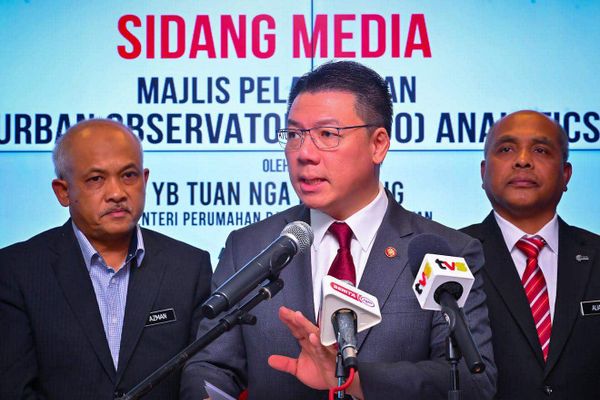BANGKOK, April 21 — Malaysia has reaffirmed its commitment to advancing sustainable urban development through policies and initiatives aligned with the United Nations Sustainable Development Goals (SDGs), particularly SDG11, which ensures inclusive, safe, resilient, and sustainable cities and human settlements.
Housing and Local Government Minister Nga Kor Ming highlighted Malaysia’s significant progress under the “Housing for All” policy. He said that in the past three years, 466,421 affordable homes have been delivered, representing 93.3 per cent of the target of 500,000 units outlined in the 12th Malaysia Plan, which has increased the nation’s homeownership rate to 77 per cent.
“Urban liveability remains a priority. Malaysia is committed to building 1,000 Madani recreational parks and planting 100 million trees within five years under the Malaysia National Greenery Programme, surpassing the initial target,” he said when delivering the national statement during the 81st Session of the Economic and Social Commission for Asia and the Pacific (CS81) at United Nations Conference Centre here today.
Nga also emphasised the role of Voluntary Local Reviews in improving governance structures.
“Currently, 53 per cent of all local councils are actively collaborating with the federal government to align their priorities with Malaysia’s national sustainable development agenda,” he added.
Earlier, Nga led the Malaysian delegation on a three-day working visit to Thailand, which included Housing and Local Government Ministry multilateral affairs adviser Neil Khor Jin Keong and Urbanice Malaysia chief executive officer Norliza Hashim.
However, Nga also noted that Malaysia’s leadership in the region is evident with the launch of the SDG11 National Roadmap, the first of its kind in the Asia-Pacific region.
“We are scaling up this initiative by partnering with the Philippines and the United Nations Economic and Social Commission for Asia and the Pacific (ESCAP),” he said.
He highlighted that the collaboration includes the introduction of the Asia Pacific Urban Agenda Platform, in partnership with UN-Habitat, to promote knowledge sharing and best practices on the implementation of the New Urban Agenda and SDG11.
“As Co-Chair of the Asia-Pacific Localisation Partnership for Sustainable Cities, Malaysia is actively advancing the Cairo Call to Action adopted at the 12th World Urban Forum,” Nga stated, adding that empowering communities and fostering partnerships remain key to transforming aspirations into action.
“We are also excited to initiate new cooperation tracks, including the National Cool Cities Action Plan and Nature-Based Solutions for urban climate action. Co-developed with ESCAP, these platforms will bring climate dialogues to cities, towns, and regions,” he said.
Looking ahead to Malaysia’s role as Asean chair this year, Nga affirmed the country’s commitment to promoting sustainable urbanisation across the region.
“Malaysia will actively involve all Asean members and ESCAP in the Asean Sustainable Urbanisation Forum to drive meaningful progress,” he said.
The CS81, which began today and runs until Friday, brings together ministers from across Asia and the Pacific, along with other key stakeholders, to exchange views on current and emerging policy issues for inclusive and sustainable development in the region.
— Bernama


